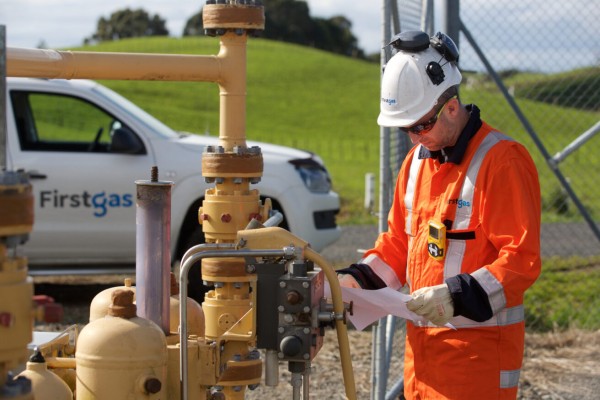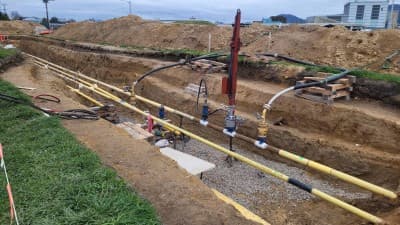New Zealand has been producing natural gas in Taranaki since 1959, when our largely rural nation had a population of just 2.5 million. Now our population has doubled, our industries have expanded, and our energy use has skyrocketed, and natural gas has been a cornerstone of our energy supply.
Powering homes and businesses across New Zealand

- Around 30% goes toward electricity generation and co-generation, providing back-up electricity when renewable sources aren’t meeting peak demand.
- Roughly 4% is used in homes, for hot water, heating and cooking, for 290,000 residential customers.
- Gas also supplies 11,000 small commercial businesses such as restaurants, where chefs use it for cooking.
- There are 5,000 large commercial customers, which includes hotels, where gas provides hot showers for every guest, even at peak capacity.
- Finally, there are 300 large industrial gas customers who use gas to power big operations, including the manufacture of steel, milk powder, and fertiliser.
Overall, the oil and gas industry contributes more than $2.5 billion to the New Zealand economy each year, pays around $500 million in tax and employs 11,000 people. Natural gas makes “a significant contribution” to our nation’s economy and our energy mix, according to the International Energy Agency’s 2023 report.
Infinite hot water – even in a power outage
Gas has been a valuable fuel source for a long time because it provides instant, powerful heat. It has a very high energy content, giving it exceptional energy efficiency. Compared to coal and oil, natural gas is a relatively clean-burning gas that emits around 50% less carbon dioxide than coal and around 30% less than oil.
Excellent energy source for industrial processes that require high, precision heat
All these factors make gas an excellent energy source for industrial processes that require high, precision heat. It is commonly used in the production of glass, ceramics, cement, textiles, food and metals.
Advantages of gas for our homes
In our homes, there are also advantages to that instant, precision heat. Gas is particularly popular as a cooking fuel, providing home chefs with versatility and optimal temperature control. Plus, a gas califont gives instant hot water, without ever needing to worry about running out even if everyone in the family showers in the morning.
Another advantage is that heating, cooking and showering with gas don’t rely on electricity. When there’s a power outage, people who live in homes with gas are still able to have hot water, warm homes and cooked meals – without relying on the grid.

Source: iStock image used for illustrative purposes only. Not an actual representation of a Clarus business.
A vital transition fuel to a low-emissions future
Natural gas will be an essential part of the world’s transition to a net zero future, because it can provide a lower-emission stepping stone as industries move from oil and coal toward renewable fuels.
Here in New Zealand, we have existing infrastructure for natural gas extraction, transportation, and distribution. This can be repurposed and used to distribute blended gas, biomethane, and ultimately 100% renewable gas.
Security of supply
As we work toward an economy powered fully by renewable energy, natural gas can also provide a back-up energy source for times when wind and solar power can’t meet demand. It can be stored easily, delivered rapidly, and switched on and off at will, so it is an excellent interim solution to the problem of intermittent renewable electricity.
Working towards a 100% renewable gas network
Here at Clarus, we are investigating how we can convert our gas pipeline to 100% renewable gas by 2050, helping Aotearoa achieve its emissions targets. To learn more about how Clarus is supporting the transition to a net zero carbon New Zealand by 2050, visit www.clarus.co.nz/future-of-energy.





